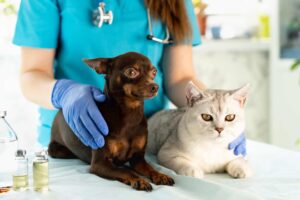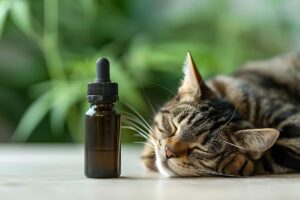The importance of vitamin D supplementation in the diet has been known since the beginning of the last century, studies on carnivores have shown that dogs and cats need higher amounts of vitamin D than other mammals; moreover, it has been assumed that the dogs’ skin is inefficient in producing vitamin D through ultraviolet radiation.
As a result, these animals depend solely on their diet to get the vitamin D they need.
There is still not enough information on the relationship between vitamin D and the dog’s environment.
One 2022 study of the Iranian Faculty of Veterinary Medicine was aimed at determining the baseline value...
This content is available only to registered professionals
or log in to your account







